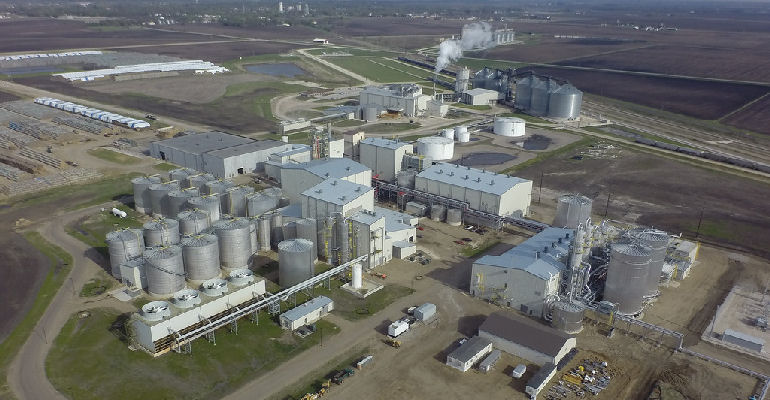Joint venture with Royal DSM will shift from cellulosic production to R&D focused on improving efficiencies.

In another ripple effect from the Environmental Protection Agency’s management of the Renewable Fuel Standard (RFS), POET-DSM Advanced Biofuels LLC -- a joint venture of Royal DSM and POET LLC -- announced that it will pause production of cellulosic biofuels at Project LIBERTY located in Emmetsburg, Iowa, and shift to research and development (R&D) focused on improving operational efficiency.
The joint venture will focus on R&D with the goal of improving mechanical reliability, creating additional technological efficiencies and licensing technology in countries that favorably support the use of low-carbon fuels from crop residue and other biomass.
As part of this effort, the joint venture will use biomass stored on site or already under contract and will not purchase additional biomass at this time. The team needed to sustain R&D efforts has been evaluated, and the joint venture will move forward with a reduced headcount in February.
Kyle Gilley, POET senior vice president of external affairs and communications, would not disclose actual production numbers at the plant but said the facility had produced “millions of gallons” sold into the commercial marketplace. However, EPA’s management of the cellulosic and overall ethanol renewable volume obligations (RVOs) created a disincentive for the marketplace.
“Over the last three years, EPA management of the RFS has held back cellulosic ethanol advancement, hindered future agricultural markets for U.S. farmers and undermined what the President has promised,” Gilley said.
For example, EPA has continuously implemented lower RVO levels for cellulosic biofuels, shrinking the market potential for this new technology. The RFS originally called for up to 21 billion gal. of cellulosic ethanol by 2022. The 2020 proposed volume for cellulosic ethanol is at just 540 million gal. -- considerably less than the 10.5 billion gal. in statutory levels for 2020. EPA has justified the lower cellulosic targets based on achievable levels of production in the marketplace today.
In addition, EPA recently announced 31 new small refinery waivers, which are reducing the annual blending amounts to below statutory requirements, causing a precipitous drop in D3 renewable identification number (RIN) values and removing an incentive for purchasing the product and commercializing the technology, the companies explained. Gilley said RIN prices dropped from $3/gal. in 2017 to as low as 59 cents.
EPA has blocked new cellulosic ethanol pathways by changing the approval mechanisms outside of the required legal processes, which slows the development and commercialization of processes that meet the intent of the RFS. Project Liberty was designed to use corn stover as an energy source and had the capacity to produce 25 million gal. of cellulosic ethanol per year.
“Because of these policy changes, the economic landscape for cellulosic ethanol in the U.S. makes private and global investments in this technology more challenging. As a result, our joint venture is responding by temporarily pivoting and focusing on R&D efforts to improve technological efficiencies and explore additional international licensing opportunities in countries that are not choosing oil over agriculture” said Hugh Welsh, president of DSM North America.
When Project Liberty was launched, it was estimated that area farmers would see an extra $46 per acre in net profit, or $20 million in new revenue. The hope was to utilize the excess residue on farmland, which also requires more intense tillage to manage. POET-DSM wanted to utilize 25% of a farmer’s above-ground biomass, allowing up to a 5% yield increase and less intensive tillage.
About the Author(s)
You May Also Like




.png?width=300&auto=webp&quality=80&disable=upscale)
